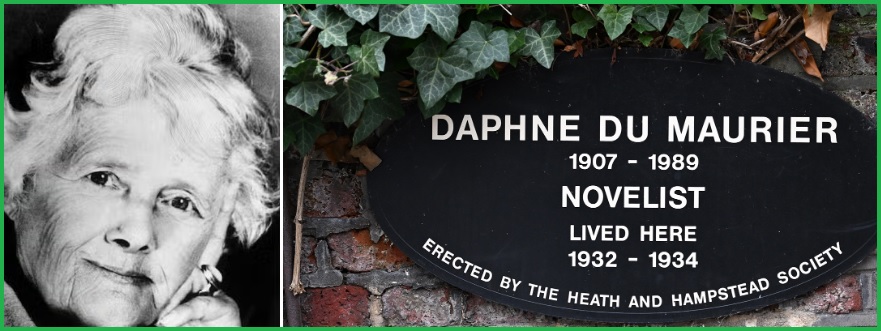Daphne Du Maurier . . . and Fowey

Last week’s newsletter honoured the “Bard of Stratford-upon-Avon”. Time now to salute to salute a formidable female writer from leafy Hampstead – Dame Daphne du Maurier. No doubt many are familiar with her rich variety of books including best sellers The Birds, Rebecca and House on the Strand.
Daphne has a noble family history – her grandfather was artist and writer George du Maurier and her father, Gerald, the most famous actor-manager and matinee idol of his day. Mother Muriel Beaumont was an actress.
The family bought a holiday home in Cornwall in the 1920s and the house, Ferryside at Boddinnick across the estuary from Fowey, became Daphne’s favourite haunt where she could concentrate on her writing. Her first novel, The Loving Spirit, was published in 1931. Like many of her books, it was set in Cornwall, near Fowey.
This was my introduction to du Maurier and I was enchanted by the way she brought the scenery to life. Each May, Fowey hosts a Literary Festival (formerly known as the Du Maurier Festival now the Fowey Festival of Art and Literature) around the time of her birthday.
Daphne’s most famous novel, The Birds, was immortalised on screen. One year, we learned during a festival talk, that Daphne was not happy with the way the film had been promoted as “Alfred Hitchcock’s The Birds”. She had exclaimed loudly: “It’s not Hitchcock’s The Birds – it’s mine!”
Many friends from our church have enjoyed holidays at Fowey over the years at festival time. Guest speakers have been varied and entertaining including Terry Waite (never bettered), Ann Widecombe, Fern Brittain, Judy Finnegan, Richard Madeley and Georgie Fame.
The setting at Fowey is stunning and those who venture to the top of the town are richly rewarded by the view from Fowey Hall Hotel, the inspiration for Toad Hall in Kenneth Grahame’s The Wind in the Willows.
— Lynn Radnedge
